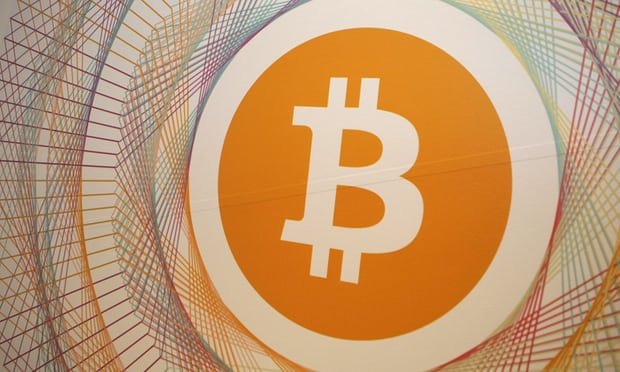Bitcoin bubble warnings issued as futures trading opens in Chicago
Bitcoin has taken a step toward legitimacy with the launch of a product on a Chicago exchange that allows investors to take bets on its price in the future.
The new contract on the Chicago Board Options Exchange came as the digital currency jumped another 10%, sparking fresh warnings of a speculative bubble after last week’s 40% climb in price.
Bitcoin was trading at $16,200 – up 10% on the day – while the new futures contract trading in Chicago showed that traders were expecting the cryptocurrency to be trading at even higher prices in January.
The futures contract trading on the CBOE allows traders to take bets – or to protect themselves – on the price of bitcoin next month. It started trading just before midnight (in London) on Sunday at $15,460, hit a high of $18,700 and then dropped back to $17,800.
Such was the price volatility when the contract launched that trading had to be halted twice through so-called circuit breakers and the CBOE had to admit that its website was creaking because of the heavy traffic although its trading platform

The launch of the contract on a regulated exchange is regarded as a sign that bitcoin is becoming more mainstream rather than currency associated with technology experts and even criminals.
Daniele Bianchi, assistant professor of finance at Warwick Business School, said: “Although it has been thought of as a peer-to-peer payment system, it is evident that bitcoin is gaining more and more legitimacy as an asset class. Today’s launch of bitcoin futures has the potential to add further momentum and thus increase the appeal of the cryptocurrency to both institutional and retail investors.”
Volume in the futures contract was low: according to calculations by Breakingviews, it was roughly $50m (£37m), less than 0.5% of actual bitcoins.
Bitcoin – created in the aftermath of the financial crisis as a way to avoid using banks – started the year trading at $966 and its meteoric rise this year has led to comparisons with the dotcom bubble in 2000 and the 17th century tulip bubble.
One of a number of cryptocurrencies, bitcoin is not regulated and is controlled by a network of computers that update all transactions which take place on a variety of trading platforms around the world. It only exists digitally and is “mined” using mathematical equations.
Advertisement
But on Monday, a top central banker said the European Union should look at the possibility of regulating bitcoin because of the risk of money laundering. Speaking in Vienna, Ewald Nowotny, said: “Simply because of the scale, it is certainly increasingly necessary to discuss whether and in what form regulations are needed here.”
Nowotny, Austria’s central bank governor and also involved in setting interest rates at the European Central Bank, added: “A particular aspect that needs to be discussed ... is the question of how far the regulations on money laundering ... are relevant here.”
His remarks come after warnings from other senior bankers about the risks associated with bitcoin. Last week, Howard Davies, chairman of Royal Bank of Scotland, had said the sign should be put up from Dante’s Inferno – “Abandon hope all ye who enter here” – while Jamie Dimon, the head of JP Morgan, has talked about bitcoin as being worse than tulip mania and potentially used by “a drug dealer, a murderer, stuff like that”.
As the new futures contract was launched, analysts at Swiss bank UBS said “cryptocurrencies are a bubble”. Paul Donovan, global chief economist at the Swiss bank’s asset management arm, said futures on tulip bubbles were launched in 1636. The tulip bubble did not burst until February 1637.
“Bubbles are by definition irrational,” said Donovan. “Predicting when a bubble will burst cannot use rational analysis. Ignoring a bubble is the best course of action.”
About 16m bitcoins have been mined so far but there will only be 21m in total because it is written into the currency at its source code. Another futures contract on another US exchange is due to launch next week.
“while the new futures contract trading in Chicago showed that traders were expecting the cryptocurrency to be trading at even higher prices in January.”
That’s not what it shows. If futures are trading higher than spot, you could by bitcoins, sell a future in January, and make a guaranteed profit. People doing that would increase spot / decrease future price to the point where the difference covers just the interest on purchase price for 1 month, which is basically zero, + storage costs, which should also be basically zero.
Bitcoin is legitimate by itself, futures trading is not. All of Wall Street is a scam, and the fact this publication routinely sides with it and against the people tells you everything you need to know about their work for the status quo